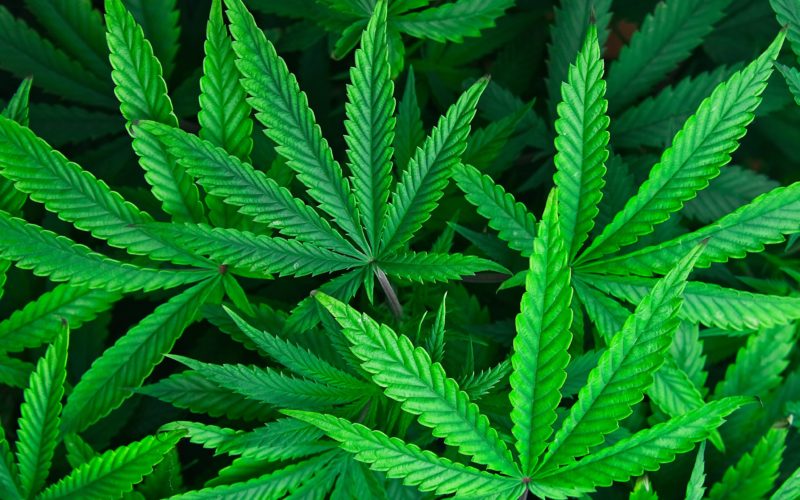Government
Cannabis Legalization Criticized in Thailand as Too Much, Too Soon

Thailand has embarked on an ambitious path to normalize cannabis, but the new policies are eliciting a storm of controversy domestically and regionally.
One thing is true about cannabis legalization no matter where it happens: Nobody gets it right the first time around—and there are always lots of critics. This has been true in every legalizing U.S. state. It is true of Canada. It will almost certainly be the case in Europe, although legislators here are cautious to back most forward moves on the legalization front into “trials.” This is also now being seen in Asia as Thailand becomes the first country in the region to legalize the plant and proceeds with crafting formal legislation to regulate the burgeoning domestic cannabis industry.
While Thailand may be internationally hailed as the first Asian country to embrace cannabis reform, however, the new policies are being harshly criticized in some quarters particularly domestically, and further with flawed logic seen elsewhere.
There are two key issues of contention. The first is that critics are lambasting the government decision to move ahead with cannabis reform at all—albeit of the medical kind. The second is that the government should have moved more slowly and studied the consequences of legalization, closing loopholes along the way.
One of the most public consequences of the country’s moves to legalize cannabis this year, beyond the global publicity Thailand received for giving away one million cannabis plants or releasing its cannabis prisoners, is to launch a public relations campaign warning tourists that cannabis is not broadly legal in the country.
And this is all before the formal bill to legalize medical use has formally passed into law.
Buyer’s Remorse in Thailand?
Thailand may be proceeding with reform a little differently than Western countries to date, but the arguments against reform seem to be remarkably similar, no matter the geography in which they happen.
The first, inevitably, comes from the established medical profession. Despite the government’s assurances that they are implementing medical not recreational use reforms, Thai doctors have raised concerns familiar elsewhere. Namely that cannabis supposedly can “trigger” mental health issues. This is particularly ironic given the history of the plant here. Historically, cannabis has been used in Thailand, as in other countries, for both medical and religious purposes.
The second wave of criticism is coming from critics who are concerned that the change in the law will hurt the reputation of Thai agricultural exports. Namely whether such biomass will be used in animal feed. There is also considerable irony in this attack, including the existence of a recent Thai study which appears to indicate that chickens fed hemp with up to 0.4% THC appear to need fewer if not any antibiotics as they are raised for meat.
A Global Stigma Remains
No matter how far cannabis reform has come in the last decade, it is situations like the one now unfolding in Thailand which are stark reminders of how far the legalization effort still has to go.
The positive news is that Thailand’s sudden change of heart towards cannabis is already prompting other countries in the region (such as Indonesia) to re-examine their own approach to cannabis.
Thailand’s green conversion, in other words, is particularly disruptive in a region that so far has resisted modern cannabis reform, and further still has some of the harshest anti-cannabis laws on the books anywhere in the world. In many parts of Asia, one can still receive a life sentence if not the death penalty for “crimes” that are considered relatively minor cannabis infractions elsewhere.
The largest hemp producer in the world, China, is of course watching all of said developments closely. At the U.N., the country still lobbies against removing cannabis from a Schedule I drug. At home, even unapproved possession of hemp seeds is considered a serious crime.
Regardless, the remarkable progress in Thailand, as well as the unconventional approach to implementing reform seen here, is just another welcome sign that, no matter the critics, the great cannabis revolution rolls on, unabated, even in this part of the world.
Source: https://hightimes.com/news/cannabis-legalization-criticized-in-thailand-as-too-much-too-soon/
Business
New Mexico cannabis operator fined, loses license for alleged BioTrack fraud

New Mexico regulators fined a cannabis operator nearly $300,000 and revoked its license after the company allegedly created fake reports in the state’s traceability software.
The New Mexico Cannabis Control Division (CCD) accused marijuana manufacturer and retailer Golden Roots of 11 violations, according to Albuquerque Business First.
Golden Roots operates the The Cannabis Revolution Dispensary.
The majority of the violations are related to the Albuquerque company’s improper use of BioTrack, which has been New Mexico’s track-and-trace vendor since 2015.
The CCD alleges Golden Roots reported marijuana production only two months after it had received its vertically integrated license, according to Albuquerque Business First.
Because cannabis takes longer than two months to be cultivated, the CCD was suspicious of the report.
After inspecting the company’s premises, the CCD alleged Golden Roots reported cultivation, transportation and sales in BioTrack but wasn’t able to provide officers who inspected the site evidence that the operator was cultivating cannabis.
In April, the CCD revoked Golden Roots’ license and issued a $10,000 fine, according to the news outlet.
The company requested a hearing, which the regulator scheduled for Sept. 1.
At the hearing, the CCD testified that the company’s dried-cannabis weights in BioTrack were suspicious because they didn’t seem to accurately reflect how much weight marijuana loses as it dries.
Company employees also poorly accounted for why they were making adjustments in the system of up to 24 pounds of cannabis, making comments such as “bad” or “mistake” in the software, Albuquerque Business First reported.
Golden Roots was fined $298,972.05 – the amount regulators allege the company made selling products that weren’t properly accounted for in BioTrack.
The CCD has been cracking down on cannabis operators accused of selling products procured from out-of-state or not grown legally:
- Regulators alleged in August that Albuquerque dispensary Sawmill Sweet Leaf sold out-of-state products and didn’t have a license for extraction.
- Paradise Exotics Distro lost its license in July after regulators alleged the company sold products made in California.
Golden Roots was the first alleged rulebreaker in New Mexico to be asked to pay a large fine.
Source: https://mjbizdaily.com/new-mexico-cannabis-operator-fined-loses-license-for-alleged-biotrack-fraud/
Business
Marijuana companies suing US attorney general in federal prohibition challenge

Four marijuana companies, including a multistate operator, have filed a lawsuit against U.S. Attorney General Merrick Garland in which they allege the federal MJ prohibition under the Controlled Substances Act is no longer constitutional.
According to the complaint, filed Thursday in U.S. District Court in Massachusetts, retailer Canna Provisions, Treevit delivery service CEO Gyasi Sellers, cultivator Wiseacre Farm and MSO Verano Holdings Corp. are all harmed by “the federal government’s unconstitutional ban on cultivating, manufacturing, distributing, or possessing intrastate marijuana.”
Verano is headquartered in Chicago but has operations in Massachusetts; the other three operators are based in Massachusetts.
The lawsuit seeks a ruling that the “Controlled Substances Act is unconstitutional as applied to the intrastate cultivation, manufacture, possession, and distribution of marijuana pursuant to state law.”
The companies want the case to go before the U.S. Supreme Court.
They hired prominent law firm Boies Schiller Flexner to represent them.
The New York-based firm’s principal is David Boies, whose former clients include Microsoft, former presidential candidate Al Gore and Elizabeth Holmes’ disgraced startup Theranos.
Similar challenges to the federal Controlled Substances Act (CSA) have failed.
One such challenge led to a landmark Supreme Court decision in 2005.
In Gonzalez vs. Raich, the highest court in the United States ruled in a 6-3 decision that the commerce clause of the U.S. Constitution gave Congress the power to outlaw marijuana federally, even though state laws allow the cultivation and sale of cannabis.
In the 18 years since that ruling, 23 states and the District of Columbia have legalized adult-use marijuana and the federal government has allowed a multibillion-dollar cannabis industry to thrive.
Since both Congress and the U.S. Department of Justice, currently headed by Garland, have declined to intervene in state-licensed marijuana markets, the key facts that led to the Supreme Court’s 2005 ruling “no longer apply,” Boies said in a statement Thursday.
“The Supreme Court has since made clear that the federal government lacks the authority to regulate purely intrastate commerce,” Boies said.
“Moreover, the facts on which those precedents are based are no longer true.”
Verano President Darren Weiss said in a statement the company is “prepared to bring this case all the way to the Supreme Court in order to align federal law with how Congress has acted for years.”
While the Biden administration’s push to reschedule marijuana would help solve marijuana operators’ federal tax woes, neither rescheduling nor modest Congressional reforms such as the SAFER Banking Act “solve the fundamental issue,” Weiss added.
“The application of the CSA to lawful state-run cannabis business is an unconstitutional overreach on state sovereignty that has led to decades of harm, failed businesses, lost jobs, and unsafe working conditions.”
Business
Alabama to make another attempt Dec. 1 to award medical cannabis licenses

Alabama regulators are targeting Dec. 1 to award the first batch of medical cannabis business licenses after the agency’s first two attempts were scrapped because of scoring errors and litigation.
The first licenses will be awarded to individual cultivators, delivery providers, processors, dispensaries and state testing labs, according to the Alabama Medical Cannabis Commission (AMCC).
Then, on Dec. 12, the AMCC will award licenses for vertically integrated operations, a designation set primarily for multistate operators.
Licenses are expected to be handed out 28 days after they have been awarded, so MMJ production could begin in early January, according to the Alabama Daily News.
That means MMJ products could be available for patients around early March, an AMCC spokesperson told the media outlet.
Regulators initially awarded 21 business licenses in June, only to void them after applicants alleged inconsistencies with how the applications were scored.
Then, in August, the state awarded 24 different licenses – 19 went to June recipients – only to reverse themselves again and scratch those licenses after spurned applicants filed lawsuits.
A state judge dismissed a lawsuit filed by Chicago-based MSO Verano Holdings Corp., but another lawsuit is pending.
Source: https://mjbizdaily.com/alabama-plans-to-award-medical-cannabis-licenses-dec-1/
-

 Business2 years ago
Business2 years agoPot Odor Does Not Justify Probable Cause for Vehicle Searches, Minnesota Court Affirms
-

 Business2 years ago
Business2 years agoNew Mexico cannabis operator fined, loses license for alleged BioTrack fraud
-

 Business2 years ago
Business2 years agoAlabama to make another attempt Dec. 1 to award medical cannabis licenses
-

 Business2 years ago
Business2 years agoWashington State Pays Out $9.4 Million in Refunds Relating to Drug Convictions
-

 Business2 years ago
Business2 years agoMarijuana companies suing US attorney general in federal prohibition challenge
-

 Business2 years ago
Business2 years agoLegal Marijuana Handed A Nothing Burger From NY State
-

 Business2 years ago
Business2 years agoCan Cannabis Help Seasonal Depression
-

 Blogs2 years ago
Blogs2 years agoCannabis Art Is Flourishing On Etsy













